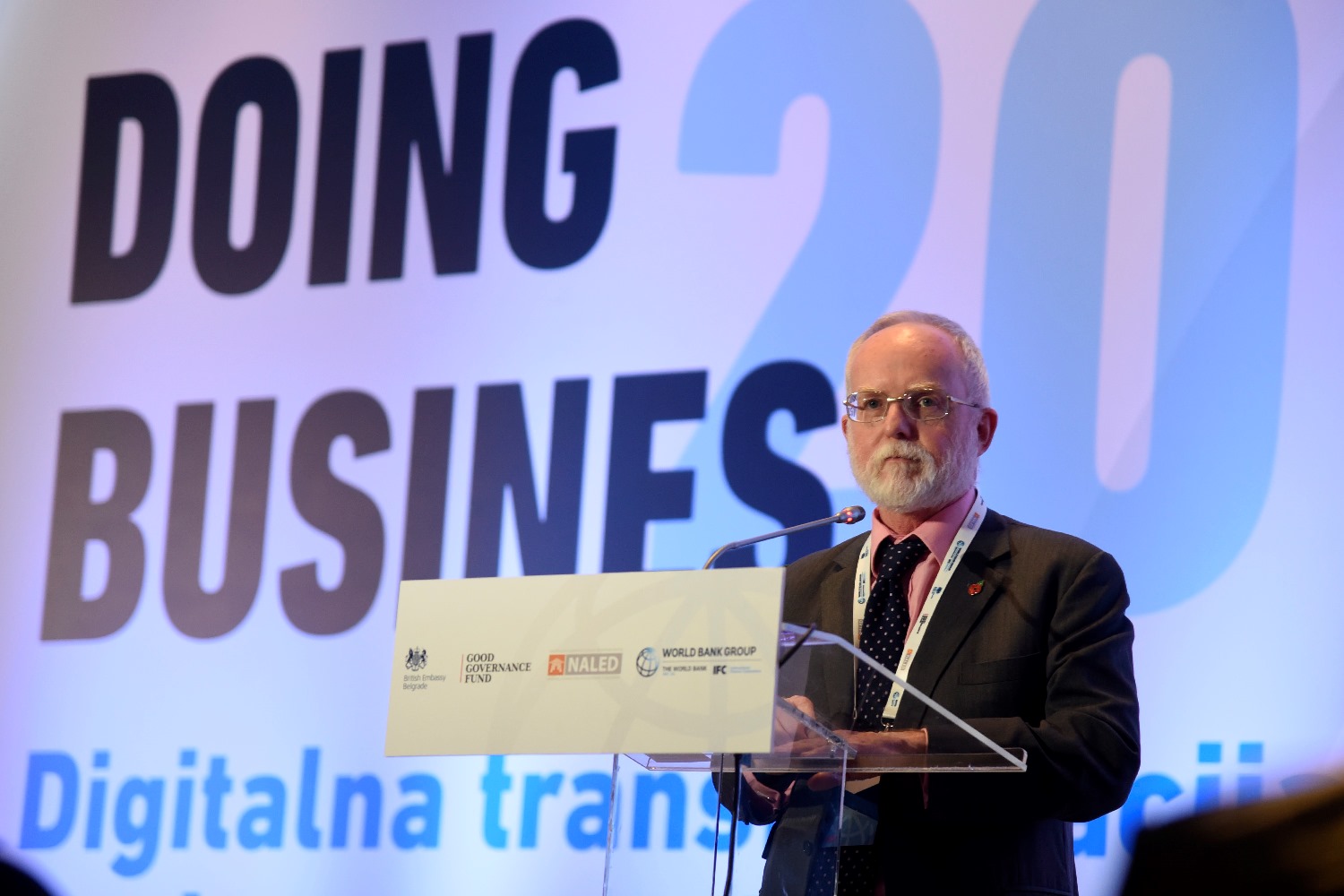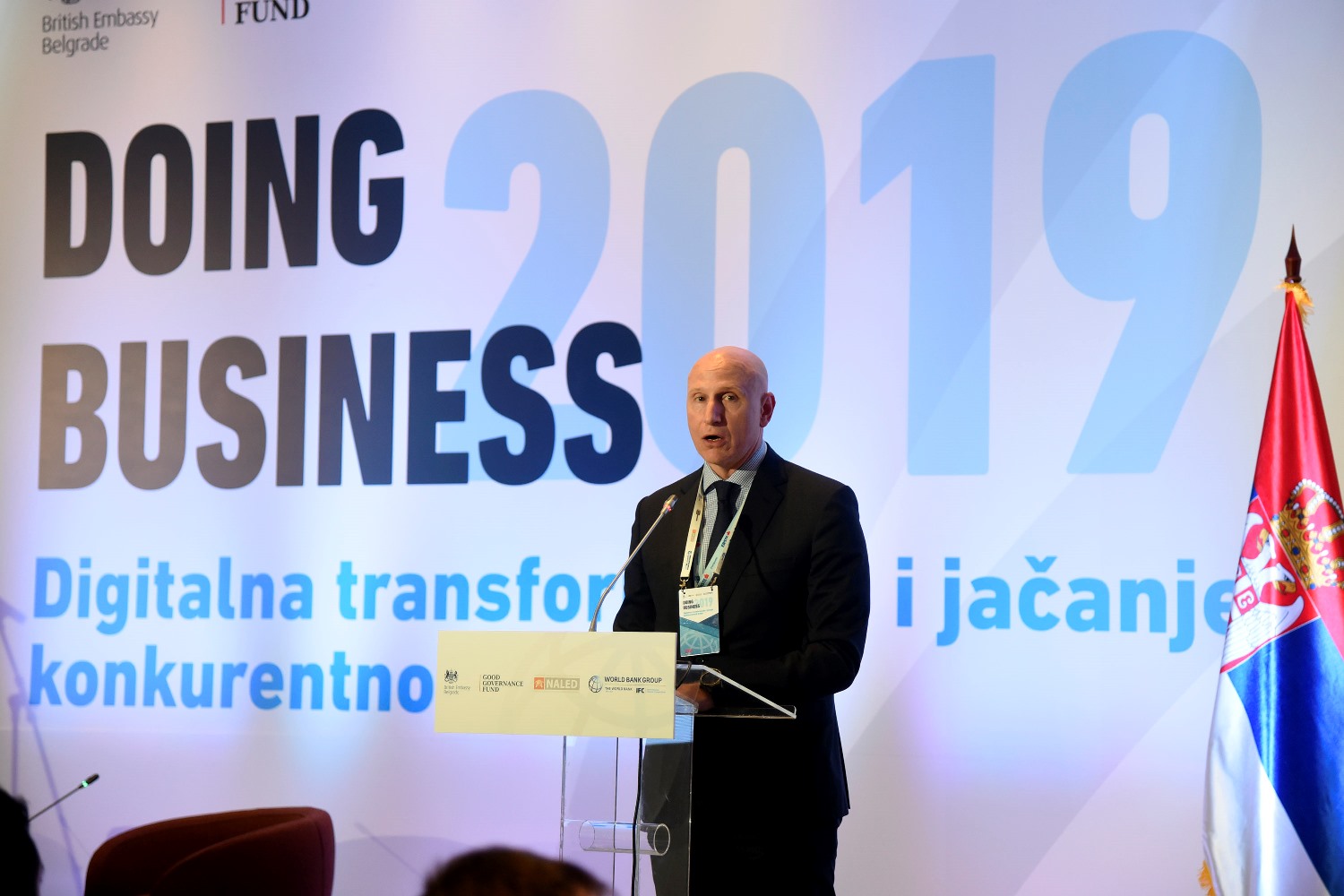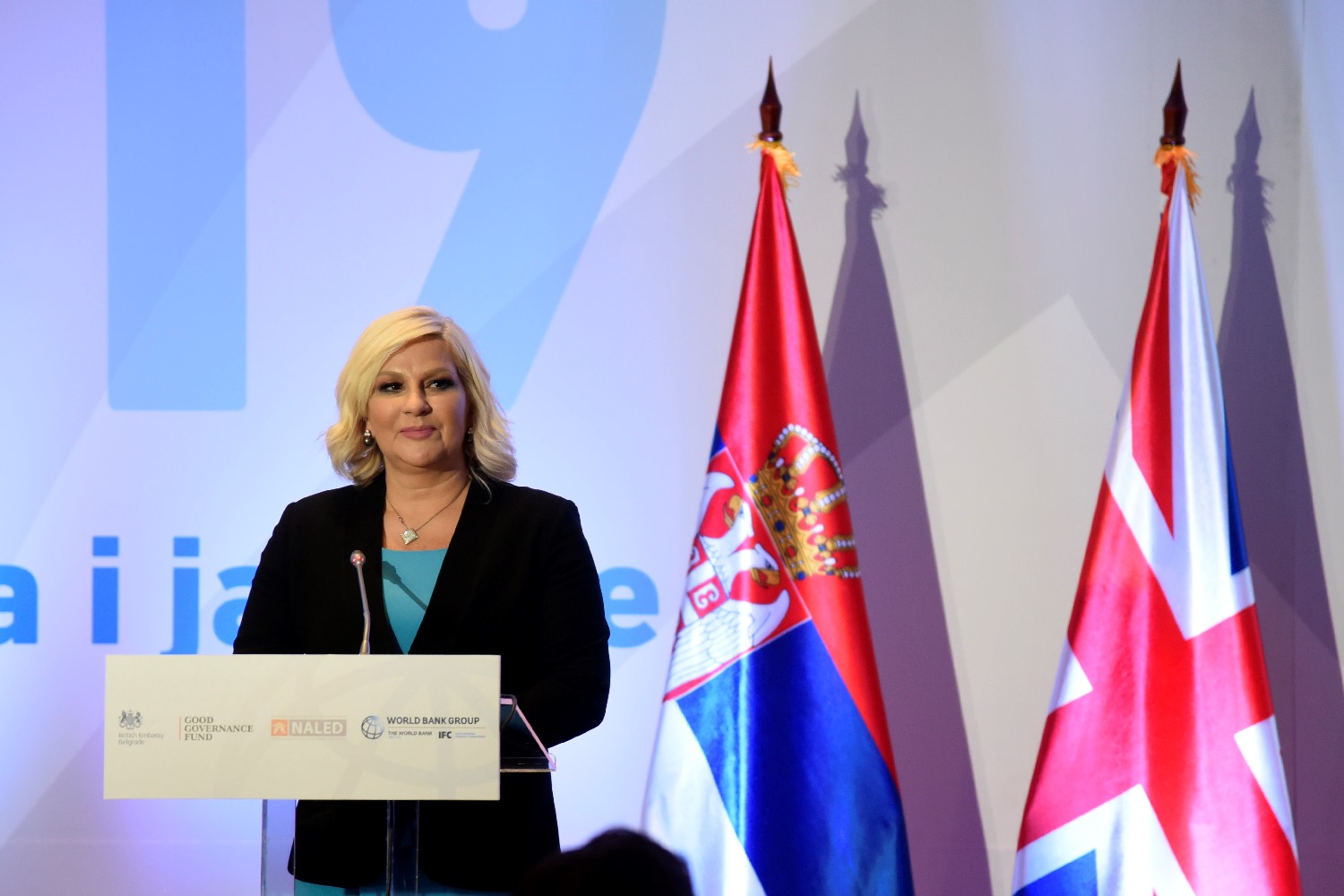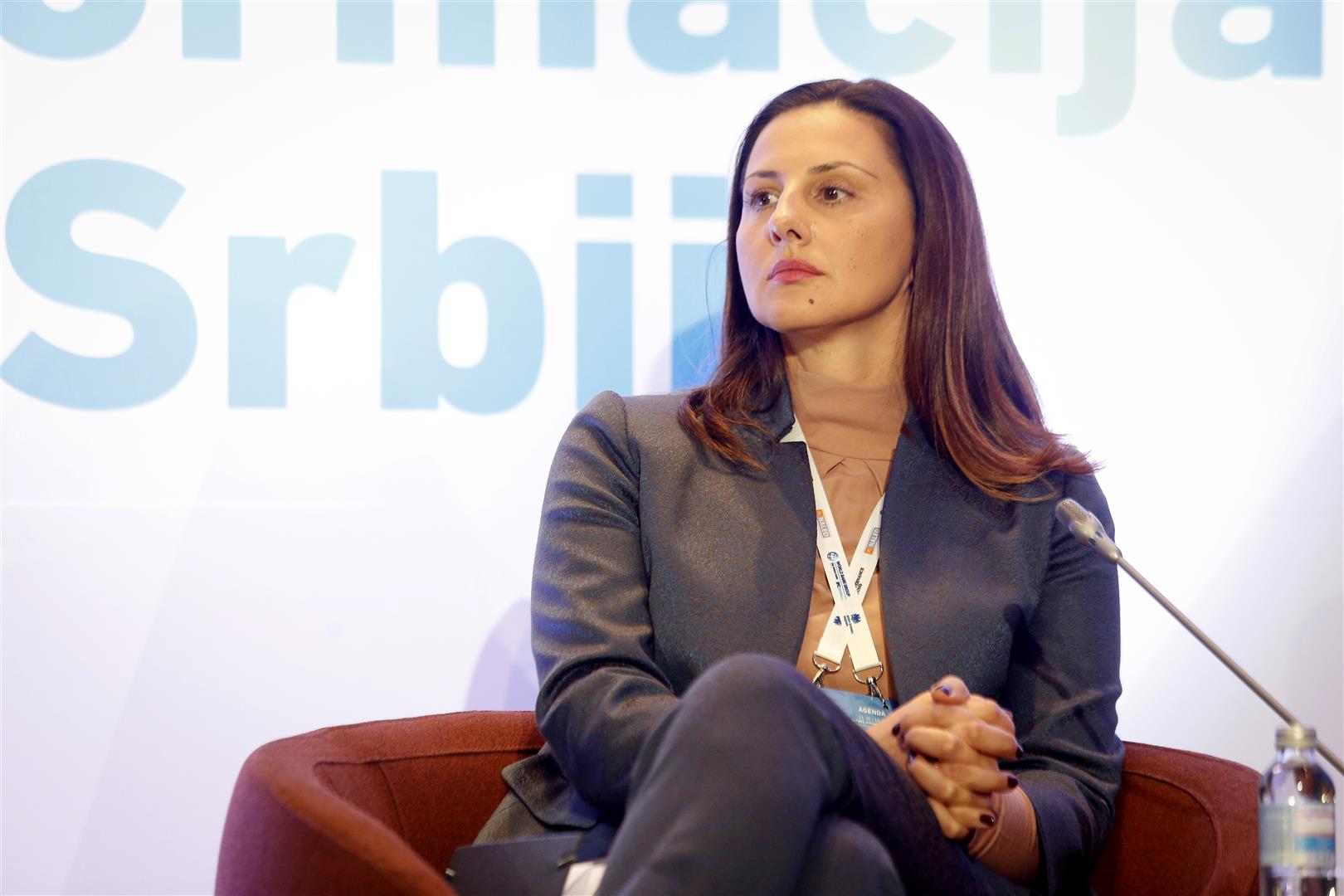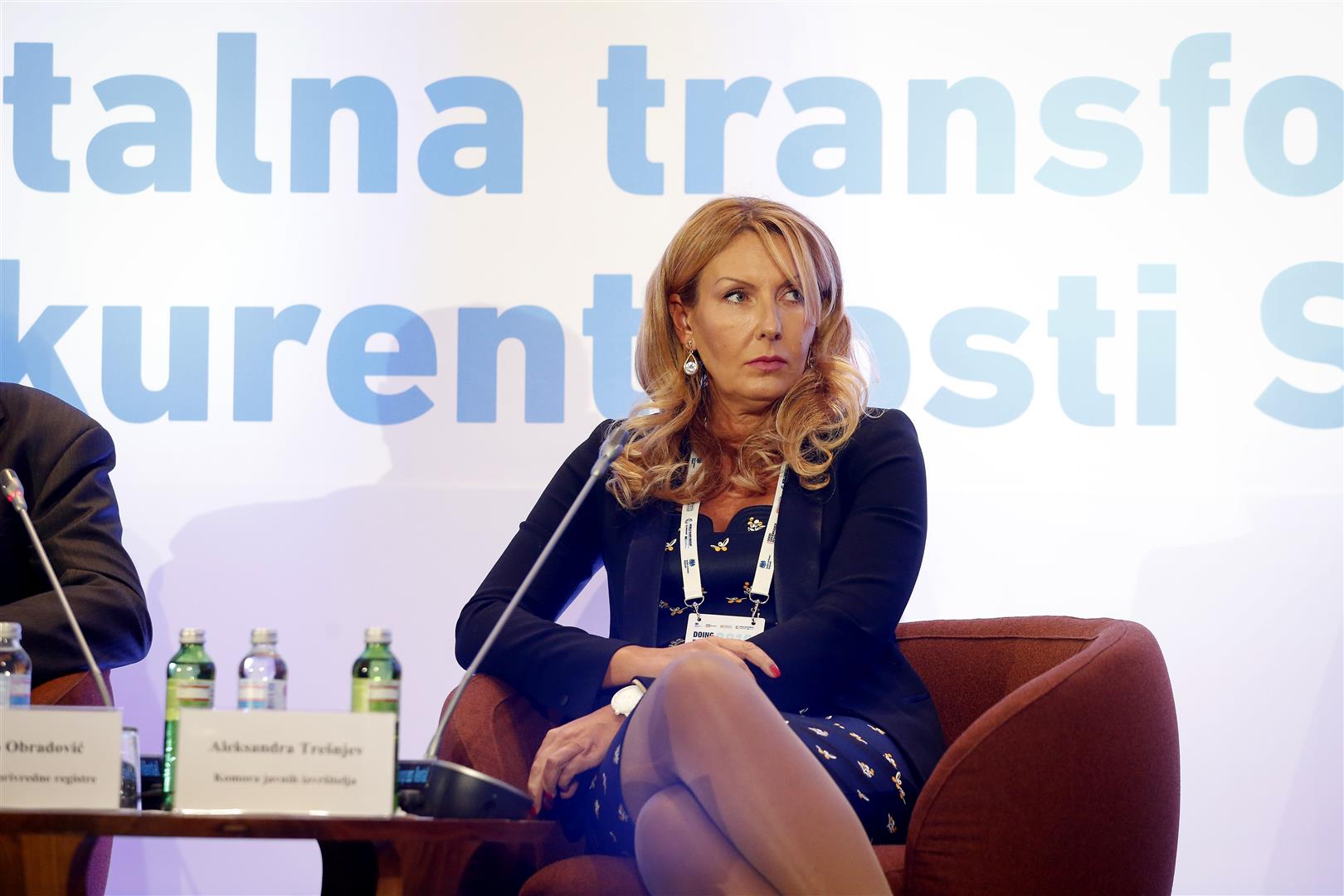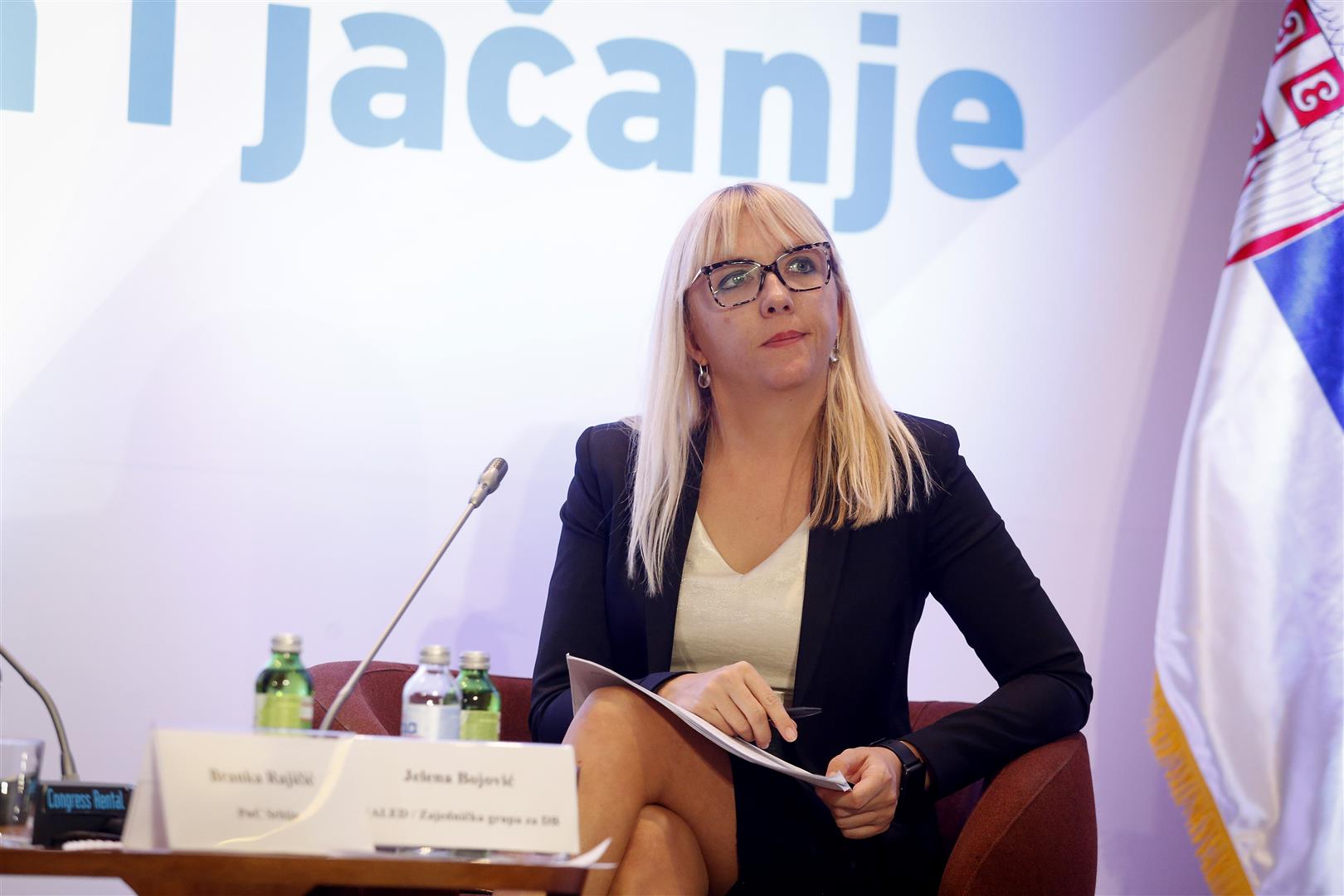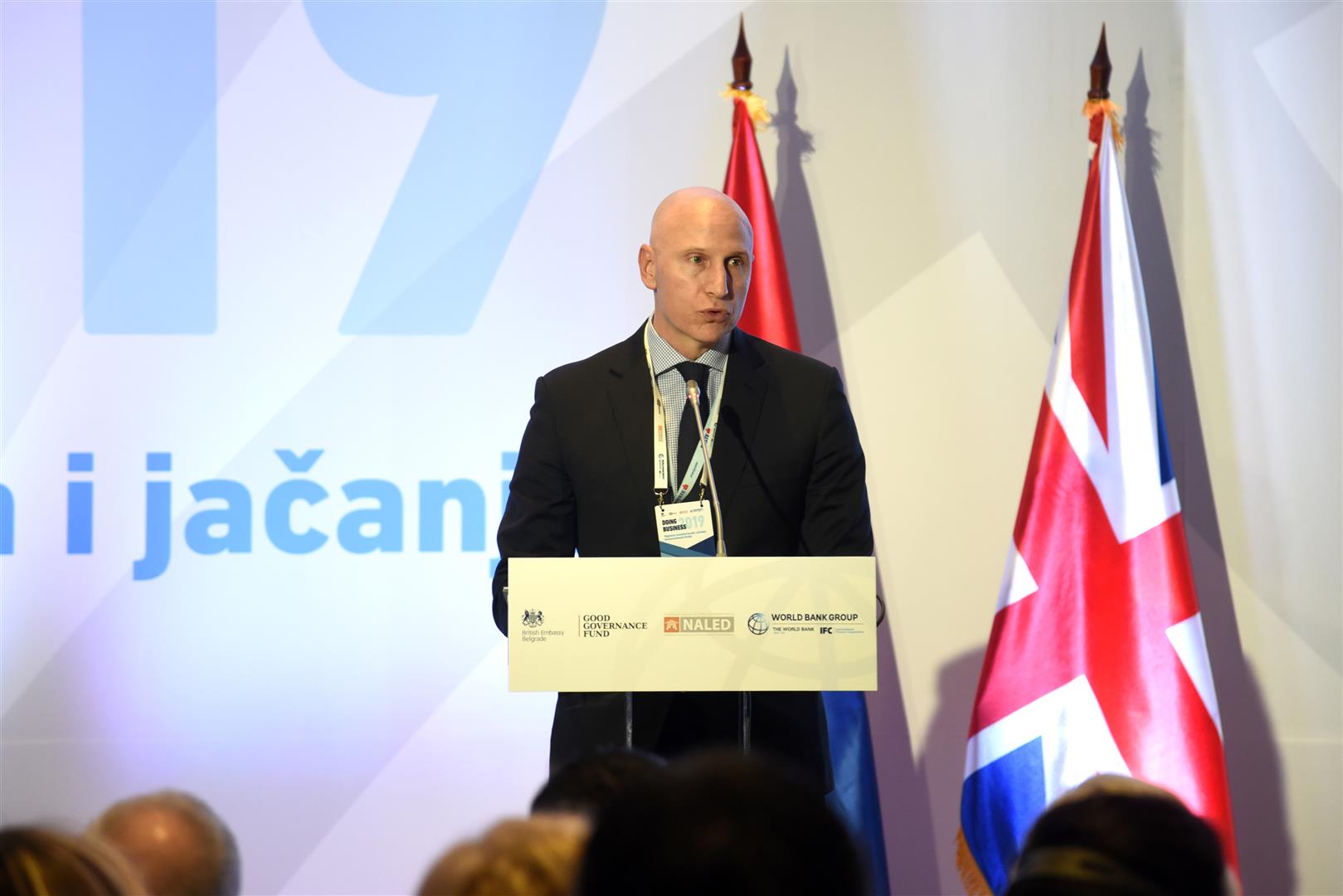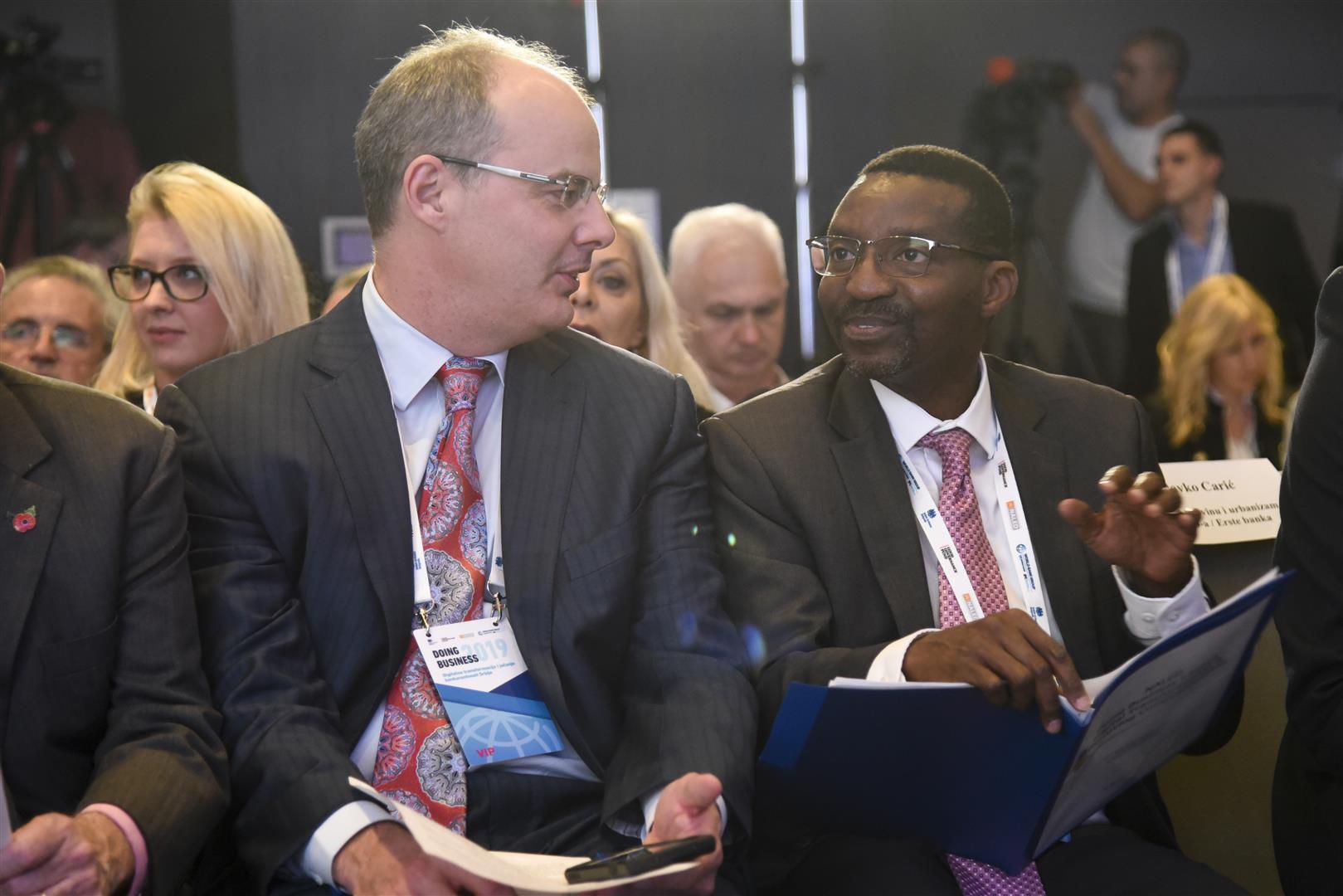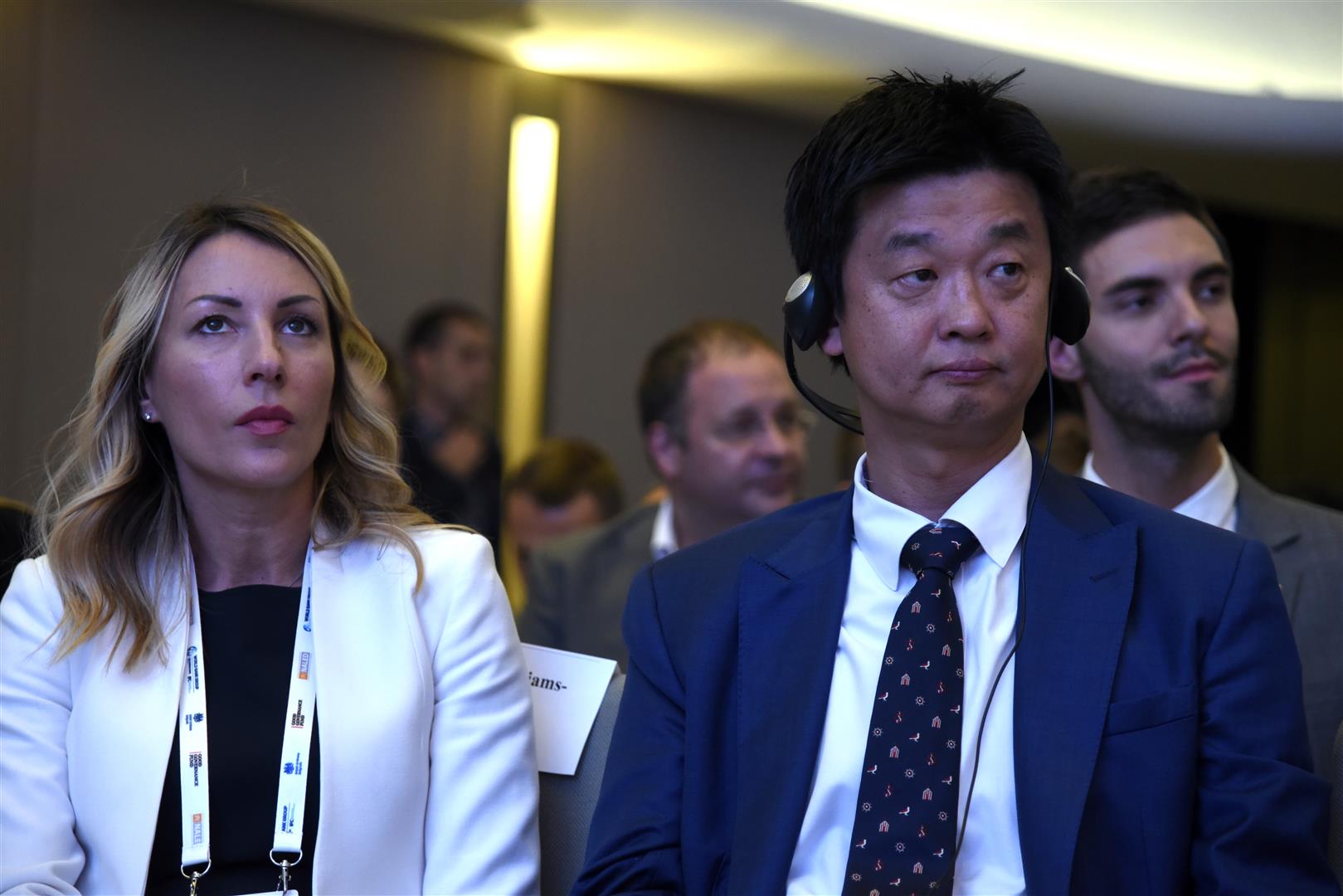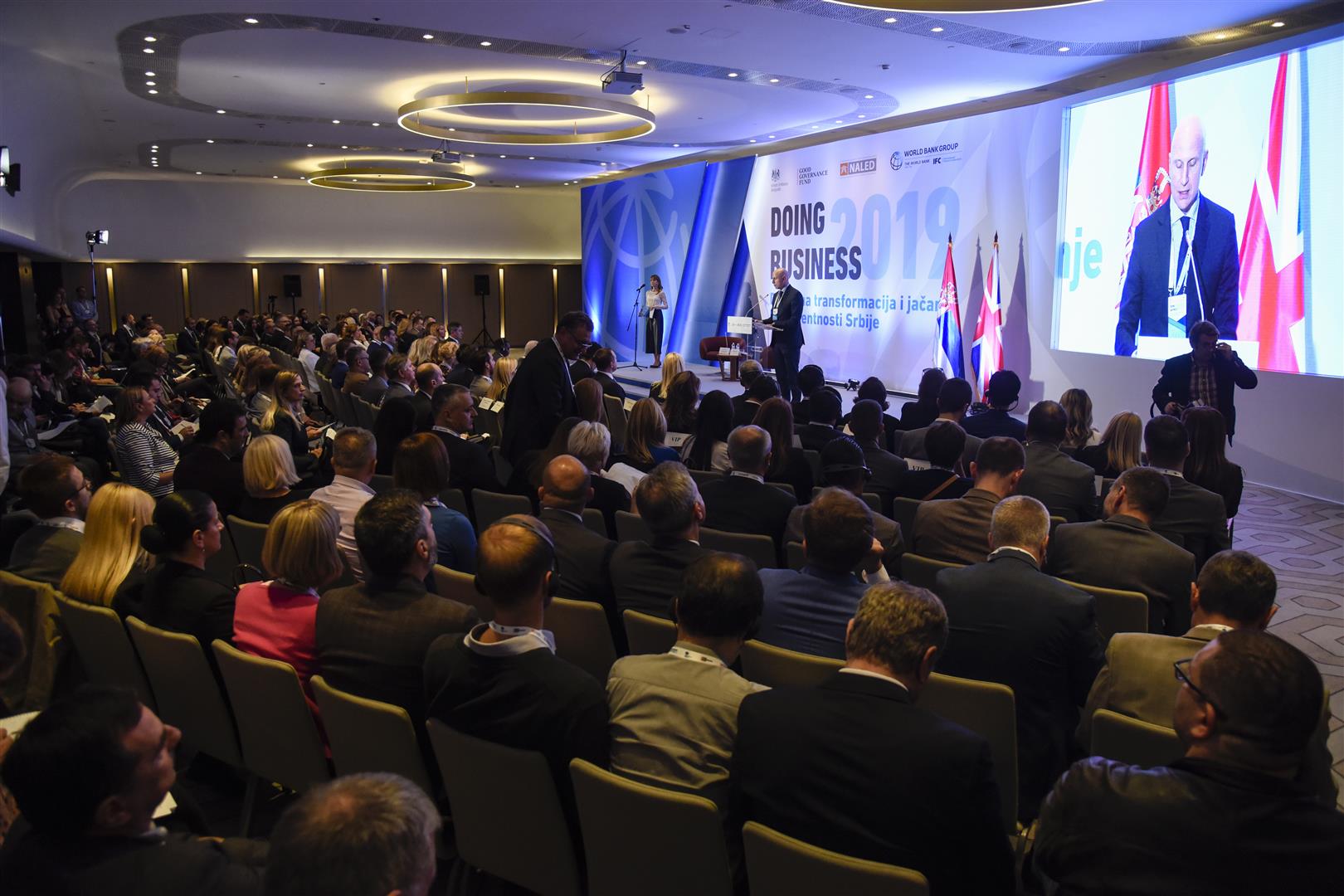Serbia ranked 48 in the Doing Business report
In the World Bank’s latest Doing Business 2019, Serbia is ranked 48th among 190 countries by the ease of doing business, which is a 5-rank decrease compared to the previous year – it was announced at the III annual conference “Doing business 2019 – Digital transformation and strengthening competitiveness of Serbia”.
Within the event organized by NALED, World Bank and the British Embassy, it was estimated that Serbia was active in conducting reforms in certain areas, but the reforms were not performed in time in order to be acknowledged by the World Bank, and we expect to see their effects included in the upcoming reports. However, there is a number of reforms that remained pending, which enabled more agile countries to outrun us in the final ranking.
- During 2017 and 2018, we initiated systemic reforms in the key areas such as the Cadaster, whose full effects can be expected in 2019 and the years to come. We have worked on the construction permitting reform for five years in order to move from the back of the list, and on the path to the 11th position we left behind more than 170 countries – said Zorana Mihajlović, Deputy Prime Minister of Serbia and the Minister of Construction, Transport and Infrastructure, who also chairs the Government’s Joint Group for improving Serbia’s position in the DB list.
Some of the important, but “late” reforms include the elimination of stamps for businesses and simplified procedure for getting electricity, new solutions for protecting minority investors and the introduction of electronic application for property tax and absolute rights transfer tax.
- Businesses expect the Government of Serbia to finally reform the para-fiscal charges such as the environment protection fee or signage fee, which still impose an obligation to 12 annual payments, to improve the process of enforcement and security, shorten and reduce the cost of insolvency procedure, ensure that the public enterprises can be more efficient in issuing location conditions for construction, and successfully finalize the initiated Cadaster reform – said Slavko Carić on behalf of NALED’s Property and Urbanism Alliance.
The conference also concluded that the DB list indicates digitalization of procedures as the key point for creating a business friendly environment, as it reduces the number of steps in all procedures, as well as the costs of administration, which is particularly appreciated by the World Bank and the investors. The greatest support to e-government development in Serbia, with 5.2 million euros invested, has been provided by the UK Government’s Good Governance Fund.
- Doing Business reports should be used as a good tool for setting up the priorities. It is easy to initiate work in Serbia but closing them is a bit harder. Access to finance goes quite hard, particularly in early stages of development. The court proceedings need to be accelerated, as well as the process of resolving insolvency procedures, an area also supported by the Good Governance Fund. We worked together with NALED on eliminating stamps, electronic archiving and other pre-conditions for full application of e-business in practice, while the next major reform which is expected to generate significant results is the procedure of registering property in the Real Estate Cadaster. This is why the UK Government, through Good Governance Fund, has ensured support to full implementation of the new law, and the establishment of a functional e-Counter – said Ambassador Denis Keefe.
World Bank’s Country Manager for Serbia Stephen Ndegwa explained that the Doing Business methodology measures a state’s distance to frontier – the best regulatory practice – in 10 categories, which makes it easier for the governments to monitor their success in conducting reforms. More than 60 countries in the world have formed special units that observe the DB list as a guide for realizing regulator improvements, including Serbia which formed the Government’s Joint Group in 2014, bringing together line ministers, businesses and experts. The Doing Business list is also a good instrument for making comparisons and adopting best practices and solutions from the most successful countries.
Hence, the III annual conference hosted a special guest – former Prime Minister of Georgia Nika Gilauri, who shared the experiences about the reforms that led his country from the 112th to the 8th position in the Doing Business list. Georgia is the most successful country in the World Bank’s rank with 47 implemented reforms, and a particularly effective was its Cadaster reform (1st rank in the world), construction permitting, protecting minority investors and starting a business (2nd position).
Only implementation counts
According to the Doing Business methodology, the adoption of even the best regulations does not lead to a progress, if it is not accompanied with proper implementation. Hence the reform of Cadaster registration, as one of the fundamental reforms whose application is awaited, will be the subject of a special project implemented by NALED with the support of UK Government’s Good Governance Fund. In the following six months, there will be 120 trainings organized for national and local public officers, and the project will provide assistance in establishing a functional, unified e-Counter for registering property, linking the activities performed by public notaries, Tax Administration, local tax administration offices, public enforcers and Real Estate Cadaster.
Thanks to the continuous reforms, particularly the reform of judicial system, tax reform, countering corruption and simplifying administrative procedures by introducing one-stop shop processes, Georgia has set a new record, reaching the 6th position in the report and being one out of two Eastern Europe countries in the Top 10, along with Macedonia.

